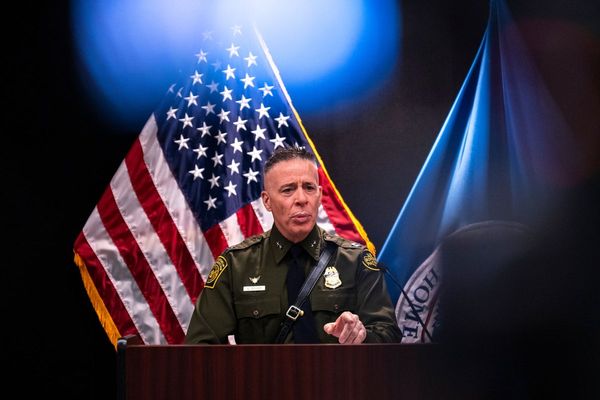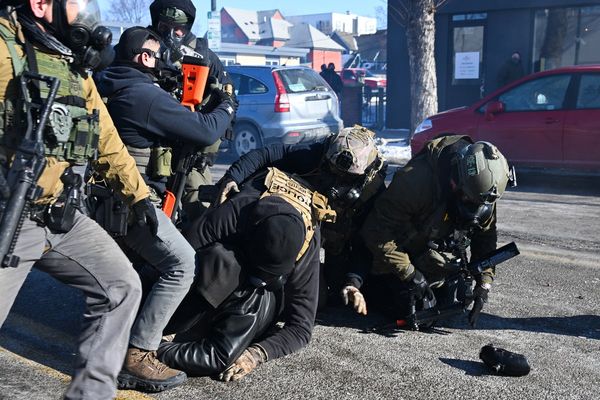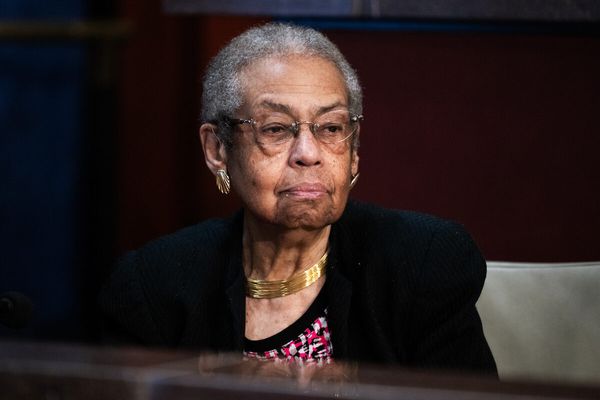
NEW DELHI: For six consecutive editions, ever since hockey was introduced at the Commonwealth Games (CWG) back in 1998, Australia have had exclusive possession of the men's hockey gold. India's twin efforts to dislodge the current world No. 1 Aussies ended in embarrassing drubbings in the finals, 8-0 at Delhi 2010 and 4-0 at Glasgow 2014.
When India lost to Australia in the final of the Glasgow edition, one of the coaches sitting in the Aussie dugout was Graham Reid. In less than 10 days from now, at Birmingham 2022, Reid will be plotting the opposite in order to end Australia's stranglehold and put a maiden CWG gold around India players' necks.
However, Reid wasn't initially scheduled to go to the CWG, as Hockey India had planned to send a B team to Birmingham, so that the first-team players stayed fresh for the more important Asian Games. But as fate would have it, Covid-19 pulled the curtain down on the Asian Games in China, forcing its postponement. Plan B was shelved and Reid received the orders to ready his best players for Birmingham.
But Covid wasn't done with obstructing India's plans, as the virus gripped Reid and a few others at the national camp in Bengaluru.
However, a fit-again Reid is back now at the helm of affairs and took time out to talk with TimesofIndia.com at length about India's CWG plans this time.
Excerpts...
First of all, Graham, how's your health now, post your battle with Covid?
It felt like a cold, to be honest. It wasn't even a bad cold. So I was probably pretty lucky.
The virus has overall become milder, probably...
I wonder, as Erik (Wonink), one of the coaches here, had it and was really quite sick. I think that's the problem that the world has, that it hits someone very hard and for others it's not too bad. Anyway, we're all through (it).
Coach, another major assignment coming up now -- the Commonwealth Games, for which a different arrangement was planned earlier with a B team. Sardar Singh was appointed to travel as coach, and players were called back from retirement. But the Asian Games postponement warranted course-correction...
Probably the course didn't change, but it just brought it forward, to be honest. We were going to be playing in a month's time or six weeks' time from now. Now, it just brought all the time-frames back (forward) by four or five weeks. So yes, it wasn't ideal and, of course, with all the periodization of planning and all that, it does play with it (hampers) a little bit. But that's also life at the moment.
I think we've been used to that for the last two years since COVID hit us. We're having to go into Plan B, C or D or whatever quite regularly. It hasn't worried us too much, I think.
A quick word on three seniors -- Rupinderpal Singh, SV Sunil and Birendra Lakra -- who came out of retirement for the CWG but are now back home because the first team will be travelling to Birmingham. What happens to those three now?
I think they are back into their retirement modes. I know Rupinder is going to be playing in Europe. Biru (Lakra) has gone back to Bhubaneshwar and Sunil has also gone back. Unfortunately, Rupinder couldn't go to the Asia Cup. So, that must have been disappointing for him because he had put a lot of work into that, as Sunil and Biru did as well. But it was good that Sunil and Biru were able to provide that young group (Asia Cup team) with really good guidance and also having Sardar there as coach was great.
We have Manpreet back as captain for the CWG, after Amit Rohidas led the team throughout the Pro League. What was the idea behind replacing Manpreet, because Amit was given a longer stretch than you usually give while switching captains for a match or two?
It coincided, to be honest, with Manpreet having his first child; and for those of us who have had kids, we know the extra responsibility that brings with it. So I think the timing for him was pretty good to just sit back and take more of a backseat. But one of the things, for me as a coach and also for a lot of coaches in this day and age, is that we need leaders for teams. So we need other players who can come to the fore...We were trying to broaden that leadership group.
For the Commonwealth Games especially, have you introduced anything new or different to the team's training environment?
Since 2016, world hockey has moved a lot towards zonal defence, i.e., when you don't have the ball, you create a zone and work within that. When I was with Australia (as coach), we used to play a lot more man to man and you would zone at specific points. But if people were to look at you, they'd probably say 'they're playing man to man'. Then, of course, once Belgium started to win, the 'Belgian press' became the thing that most teams liked to try and copy. Most of the time that's the way that we play if the ball is in the other team's half.
When we played against Belgium, of course, they're still doing their zonal press; but the Dutch have now moved back to man to man a lot, which requires you to play in a different form and a different way.
So one of the good things that we got from the Dutch (during Pro League), before we started and then between game one and two, was the need to change the way that we play, so that we can play against teams that are man-to-man markers and also zone. Of course, you can always talk about it and you can try and practice it, but upon actually having seen videos of it...(we analyze) what didn't work and what did work. That's what we've been pretty much working on.
My gut feel is that Australia will probably play like that. England may also, they've got a new coach (Paul Revington). So anything can happen. But I think that's probably the biggest difference in this last four- or five-week camp, where we've tried changing up our penalty corners (PC), the way we practice them. It's always difficult with things like corners because they are very tedious and no one likes to do the same thing (over and over). But unfortunately, sometimes if you want to get better at something, it takes repetition.
That's probably the biggest thing - the corners, the way that we handle man-to-man marking, what we do when we have the ball, that type of thing we've been focusing on.
How would you rate India's PC battery as of now, with Harmanpreet Singh leading that department alongside an exciting talent like Jugraj Singh in the ranks?
First of all, Harman won the highest goal-scorer (award in the Pro League). So he certainly has proved himself from the point of view of being one of the best drag-flickers in the world. One of the things with Rupinder, and Jugraj is getting there, was that he was an incredible drag-flicker by himself. So having two world class flickers at the top of your battery takes the pressure off...Now pretty much every team has a world class runner in their penalty-corner defence. So it's up to the drag-flickers to develop new techniques to try and be able to drag around them (PC defence runners), try some variations. The problem with variations, of course, is that it brings an extra complication.
I think the expectation of one in three (PC conversions) perhaps is now reduced a little bit. That doesn't mean I'm using that as an excuse; I'm just saying that it makes it (scoring goals off PCs) more difficult. It's not quite as easy as it was 10 years ago.
So to answer your question, I think having someone like Jugraj, who has some runs on the board, although not enough yet but certainly enough to make them (PC defence) think when they are running out that - 'hey, this guy here can also flick, so we can't just think that it's going to go to Harman'.' Varun also is someone who, when the chips were down at certain stages during the Pro League last year in Argentina, can also flick very well. Of course, we've also been developing Jarmanpreet in a different form, that's with the slap (push). That's another thing we've been trying.
How do you plan to break Australia's stranglehold on the CWG gold?
Look, everyone wants sport to be brought down to a silver bullet or one-trick pony that you can bring out and go like "look at that, we've just beaten Australia". If it was that easy, I think it certainly would have been done a while ago.
One of the problems with success is that you can look back at it in hindsight and say, "maybe that worked and that didn't". Of course, the problem that you have is that you're never quite sure which one is the one that makes the difference. There's a great book, I think Jim Collins wrote it, 'Good to Great' and 'Great by Choice', that's the second one.
In that, he (the author) talks about firing bullets at things. In other words, you try different things in four different ways. Like I'm saying to you, we're trying different ways of getting our penalty corners better and trying different things that we haven't done before. Some of those bullets will hit the target and a lot of them won't. So to get better, you gotta keep hitting bullets and then as soon as you find a bullet that hits, then you fire a cannonball, that's what this book talks about: firing bullets and then as soon as you start to get some traction, then you can fire the cannonball. So we're trying to fire as many bullets as we can and some of them are going to land and then hopefully we can fire those cannon balls at the Commonwealth Games.
Our last line of defence still, of course, is iconic goalkeeper PR Sreejesh. How are you looking at things from the goalkeeping point of view from the Commonwealth Games building up to the World Cup?
We have tried three different 'keepers at different stages. Apart from Krishan (Pathak) and Sreejesh, we have had Suraj (Karkera) and Pawan who came over the Pro League. Then we had Pankaj (Kumar) in the Asia Cup. There are a couple of juniors who have been training and Prashant (Kumar) from the junior team before.
One of the plans is to have a goalkeeping camp coming up in between the Commonwealth Games and the next Pro League games, where we can get a decent look at them and get some more education into these guys.
One of the interesting things about goalkeeping is the Australian study into the effectiveness of 'keepers as they get older. You may have noticed that they selected a guy named Ben Rennie, who is quite late 20s, if not early 30s, for the very first time to play for Australia. What that study said was that 'keepers can last a lot longer in playing at the international level and they mature a lot later. It's a very skilled game that they play, so they need a lot of expertise to get to that particular level.
I only have to look at someone like Sreejesh whose longevity in the game is incredible. You had Quico Cortes from Spain, (Juna) Vivaldi from Argentina, Kumar (Subramaniam) from Malaysia, those guys played into their late 30s.
That's what I talk to the 'keepers (about) and it's very difficult for them because you've got a 'keeper there who is 21 and there's only one position in a hockey team. So it's a difficult thing to keep players coming through and interested and motivated when there aren't very many opportunities for them. So I was very happy with how these last three months have gone from the point of view of trying different 'keepers.
My last question is related to what you often say, that you like to only control the controllables. What is that list of your controllables right now?
I read a book that talks about the sphere of influence and the sphere of control. The idea is that you try and build your sphere of influence so that you can have less things that you can't control.
From a point of view of control, there are things, of course, like pitch, umpires, weather, COVID that you can't control. Again, if you think of the sphere of influence, influence is about trying to minimize the risk of, for example, COVID. Isolating people if they have symptoms, making sure we're testing, making sure we wear all our PPE are the things we can influence and can, therefore, control or at least have an ounce of control (on).
What you can't control is if you sit beside someone on the aircraft, where all are masked up, but you end up catching COVID. Those types of things are uncontrollable.
One of the other things might be, for example, and I know this happens at the Games, is that your bus will probably get lost at some point (laughs).
I remember, we talked about it with the Australian team, this was at the 2012 Olympics in London. When you have an Olympic Games, or Asian Games or Commonwealth Games, the bus drivers are often not from that city. So they don't know where they're going. In 2012, when the GPS probably wasn't as big as it is now, we said, "Look, we're gonna get lost, just live with it. Even if we have arrived at the game late, that's fine. It will work its way, work itself out." We got off the plane, and we got lost between going from the airport to the village (laughs).
What we try to talk about a lot is preparing them for such things. Going to the training pitch in Birmingham is something like a 50-minute ride. So we need to be prepared for that and understand that sometimes that can turn into an hour and a half, when we might have to get ready on the bus.
(India are in Pool B of the men's hockey competition at CWG 2022, alongside hosts England, Canada, Wales and Ghana. India's opening game will be against Ghana on July 31)







